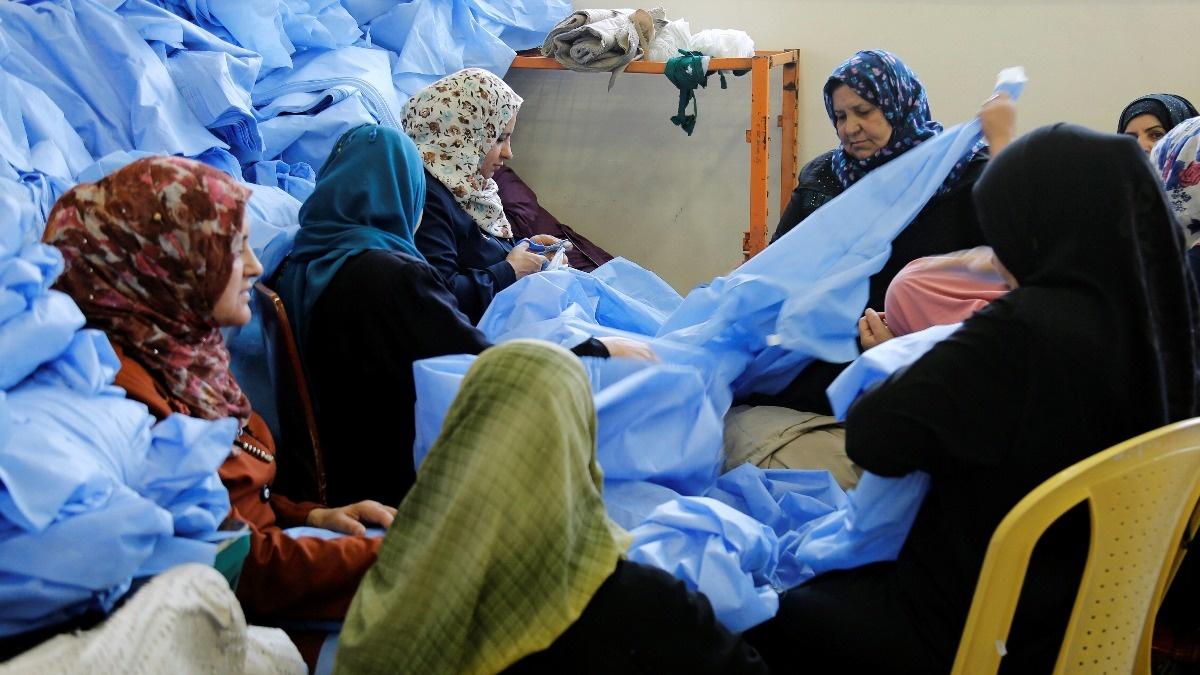
MOSUL, Iraq (Reuters) – In a workshop in a bombed-out factory in Mosul, Najlaa Abdelrahman joins scores of other women on a production line as they sew garments and try to knit their lives back together.
The mother of three lost her husband during the war against jihadist group Islamic State, which occupied the northern Iraqi city as the capital of its self-declared caliphate until government forces recaptured it in summer 2017.
Abdelrahman also lost her Mosul home and now spends half of the salary she earns at the garment factory on getting to work.
“I have been working here for a while, this is my only work opportunity,” said Abdelrahman who, like many of her colleagues, is her family’s sole breadwinner.
Most of the site was destroyed in the fighting, but the International Organization for Migration has managed to restore one section, where around 150 people – of whom 80% are women – now work, a fraction of the 1,020 it used to employ.
The factory’s foreman, Nathem Sultan, said the salaries it provides may not always be enough. But for now it is all that the business, which has a contract with the state to manufacture hospital clothing, can afford.
“This salary they receive sometimes isn’t enough to feed them, but it is hope for a better life,” he said.
Most Mosul residents are struggling financially.
Families who build their own homes go into debt while others cram into increasingly expensive rented accommodation. Foreign-funded projects suffer delays.
The 2019 state budget has allocated $560 million for the city’s reconstruction, according to two Mosul lawmakers. A UN advisor cited $1.8 billion as one estimate for a year’s rebuilding work.
Nearly two million Iraqis remain displaced due to the war against Islamic State, according to a survey by non-governmental organization REACH.
Reporting by Kawa Omar. Additional reporting by Maher Nazih and Bushra Shakhshir; editing by John Stonestreet




